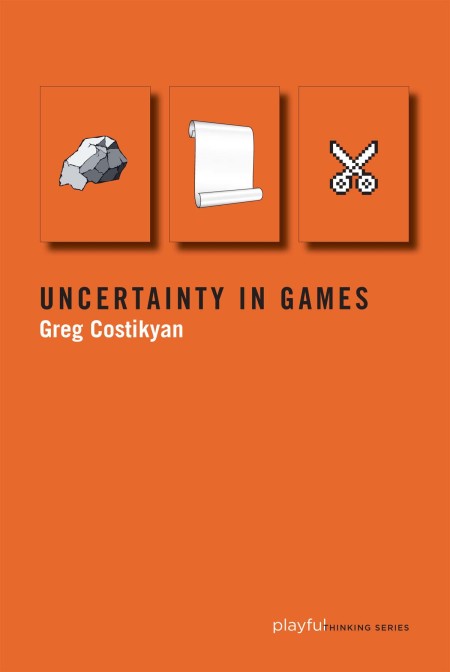And just in time for the new year, Game Studies: The International Journal of Computer Game Research has just published its latest issue (Volume 12, Issue 2, December 2012). All articles are available at http://gamestudies.org/1202/
Contents
The Algorithmic Experience: Portal as Art
by Michael Burden, Sean Gouglas
http://gamestudies.org/1202/articles/the_algorithmic_experience
Art requires criticism. Portal transcends videogame tropes: it explores the human struggle against algorithmic processes through complex parallels between the player, Chell, the companion cube, and GLaDOS. Increasingly complex frustrations are experienced directly through the game’s aesthetic of play – a freedom bounded by algorithmic control.
In the Double Grip of the Game: Challenge and Fallout 3
by Sara Mosberg Iversen
http://gamestudies.org/1202/articles/in_the_double_grip_of_the_game
A broad notion of challenge, conceptualized as both demanding and stimulating situations, is here proposed as a basis for holistic analysis of digital games which takes both the games’ mechanic and semiotic dimensions into equal account. The offered framework is demonstrated through application in an analysis of Fallout 3.
Death Loop as a Feature
by Olli Tapio Leino
http://gamestudies.org/1202/articles/death_loop_as_a_feature
This essay is a critical examination of the paradigmatic approach of interpreting computer games as games accessible for analysis and critique through ‘research-play’. The essay justifies a differentiation between game design research and game studies, and explores the avenues of analysis and critique of single-player computer games for the latter.
A Study of User Interface Modifications in World of Warcraft
by Sean Targett, Victoria Verlysdonk, Howard J. Hamilton, Daryl Hepting
http://gamestudies.org/1202/articles/ui_mod_in_wow
This paper studies the effect that user created interfaces have had on WoW and its community of users through an online survey issued to WoW players. The survey results illustrate the varied nature of this community and provide information that may aid in the creation of communities dedicated to modifying the interfaces of other software packages.
Best Before: The Red Queen Dilemma of Preserving Video Games?
by Staffan Björk
http://gamestudies.org/1202/articles/bjork_book_review
Review of Best Before: videogames, supersession and obsolescence. James Newman, 2012. Routledge, Taylor & Francis Group, New York.
Circles tend to return
by David Myers
http://gamestudies.org/1202/articles/myers_book_review
Review of The magic circle: Principles of gaming & simulation. Jan H. G. Klabbers, 2009. Rotterdam, The Netherlands: Sense Publishers.
Forever a moral subject
by Torill Mortensen
http://gamestudies.org/1202/articles/mortensen_book_review
Review of The Ethics of Computer Games. Miguel Sicart, 2009. Cambridge, Massachusetts: The MIT Press.

 In life, uncertainty surrounds us. Things that we thought were good for us turn out to be bad for us (and vice versa); people we thought we knew well behave in mysterious ways; the stock market takes a nosedive. Thanks to an inexplicable optimism, most of the time we are fairly cheerful about it all. But we do devote much effort to managing and ameliorating uncertainty. Is it any wonder, then, asks Greg Costikyan, that we have taken this aspect of our lives and transformed it culturally, making a series of elaborate constructs that subject us to uncertainty but in a fictive and nonthreatening way? That is: we create games.
In life, uncertainty surrounds us. Things that we thought were good for us turn out to be bad for us (and vice versa); people we thought we knew well behave in mysterious ways; the stock market takes a nosedive. Thanks to an inexplicable optimism, most of the time we are fairly cheerful about it all. But we do devote much effort to managing and ameliorating uncertainty. Is it any wonder, then, asks Greg Costikyan, that we have taken this aspect of our lives and transformed it culturally, making a series of elaborate constructs that subject us to uncertainty but in a fictive and nonthreatening way? That is: we create games.![artoffailure_cover_180x264[1]](http://www.jesperjuul.net/ludologist/wp-content/uploads/2013/02/artoffailure_cover_180x2641.gif) My name is Jesper, and I am a sore loser.
My name is Jesper, and I am a sore loser.